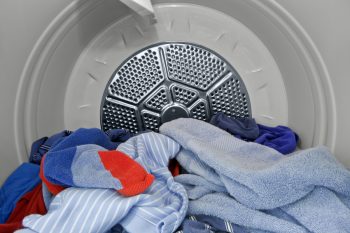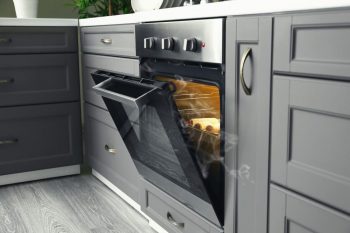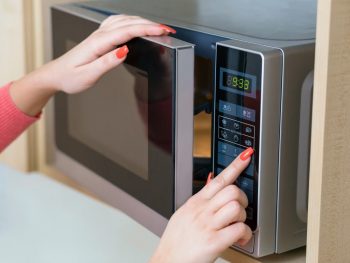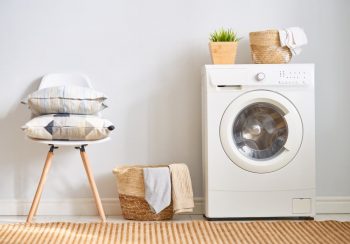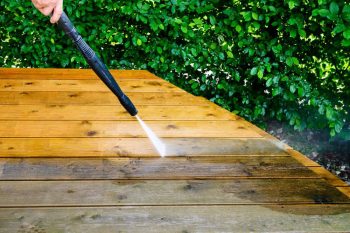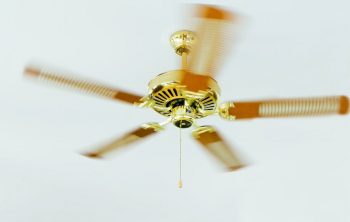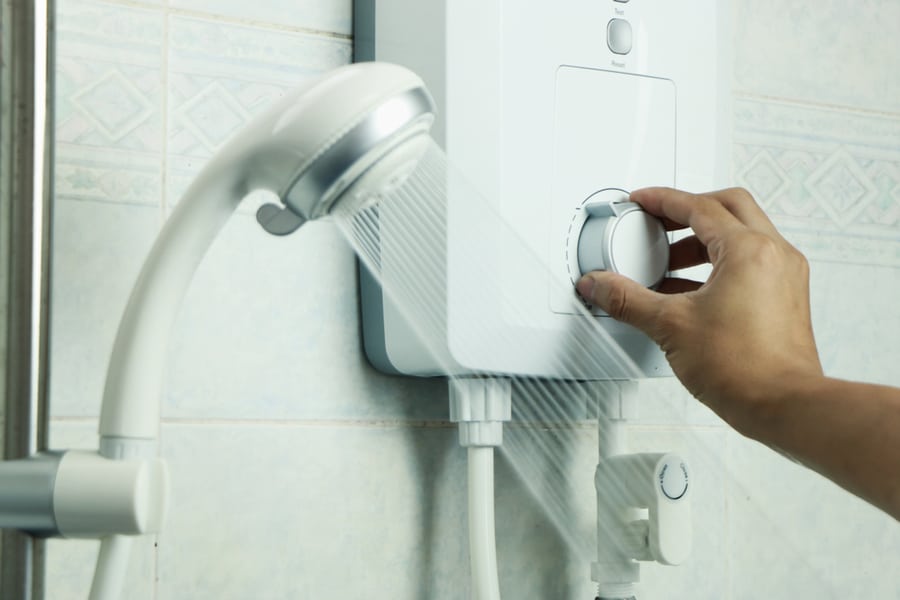
A reliable water heater at home guarantees consistent hot water and great convenience. But this convenience comes at a great deal of high energy use.
Nearly 14-18% of your home’s energy bill comes from the water heater. With high costs, it’s logical to wonder if your water heater can be more energy efficient. So, how do you make your water heater more energy efficient?
Water heaters are one of the most significant energy-consuming appliances in most households.
But you can save money on energy costs without eliminating the water heater by:
- Lowering the thermostat
- Reduce the flow rate
- Insulating the tank
- Replacing the heat trap
- Repairing leaks
- Insulating water pipes
- Installing a timer
- Using the right-sized water heater
Generally, re-evaluating the usage and maintenance of your water heaters will save you a lot of money.
This article explains why your water heater is inefficient and what you can do to reduce its energy usage, to make it more energy efficient.
8 Ways To Make Hot Water Heaters More Energy Efficient
Regardless of whether you have an electric or a gas water heater, there are simple practices you can do to make it more energy efficient.
So if you aim to lower energy costs, below are ways to make your water heater run more efficiently:
1. Lower the Thermostat
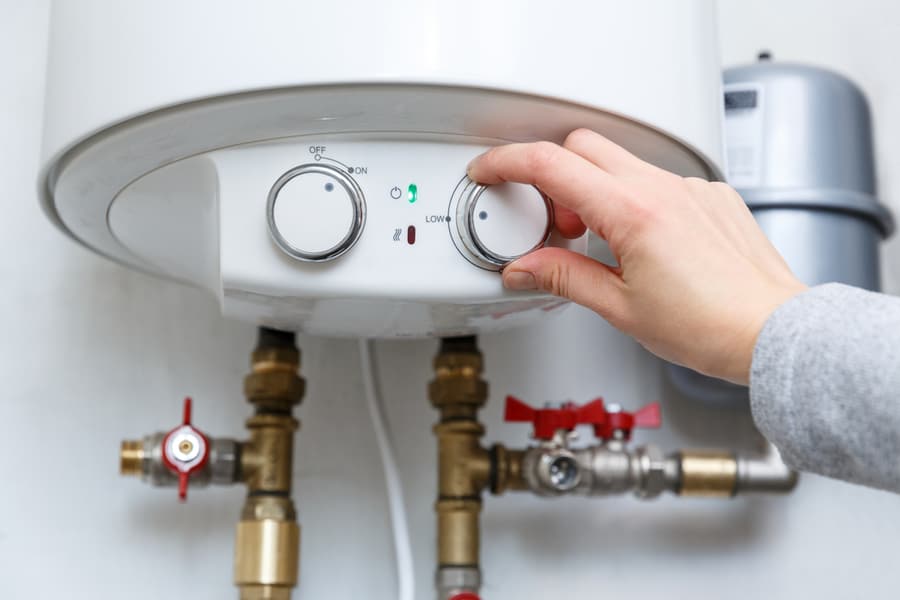
The higher your thermostat, the more energy it uses. Most manufacturers set the thermostat of their water heaters at 140F, which is excellent.
But you can lower the thermostat to 120F and still be comfortable with the hotness of the water.
For every 10F reduction in your water heater temperature, you can save from 3% to 5% on your energy cost. But be careful not to reduce the water heater’s temperature too low.
Setting the thermostat below 120F exposes you to the risk of bacteria developing in the stagnant water in the tank.
2. Reduce the Flow Rate
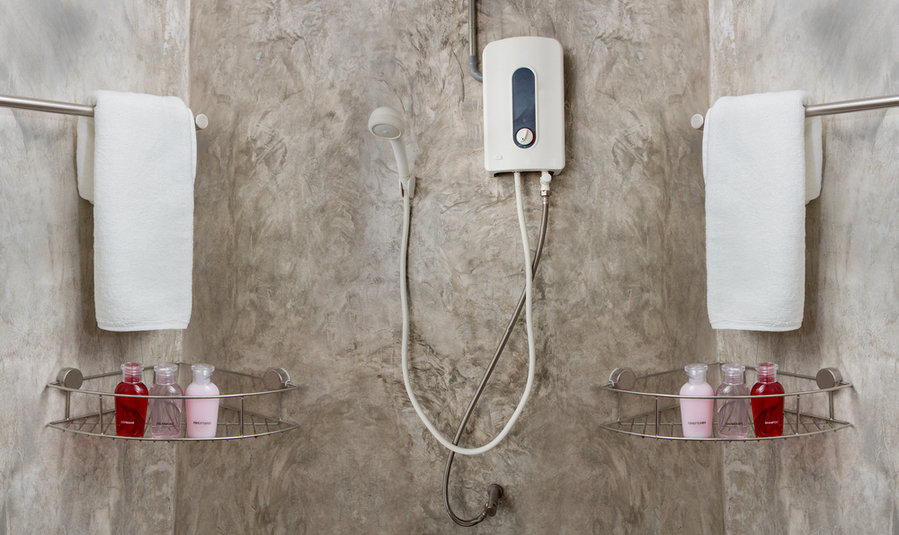
Lowering the flow rate of your fixtures is another way to save money long term.
The federal regulations mandate that the flow rate of showerheads shouldn’t be more than 2.5 gallons per minute at a water pressure of 80 psi. Or you can set the new facet flow rate to 2.2 gallons per minute at a water pressure of 60 psi.
With low-flow fixtures, less hot water goes down the drain unnecessarily, which saves you the cost of having to boil another. If the flow rate in your home is high, the easier way to regulate it is by replacing the aerator.
Alternatively, you can consider replacing the shower head or faucet you suspect has a high flow rate.
3. Insulate the Tank
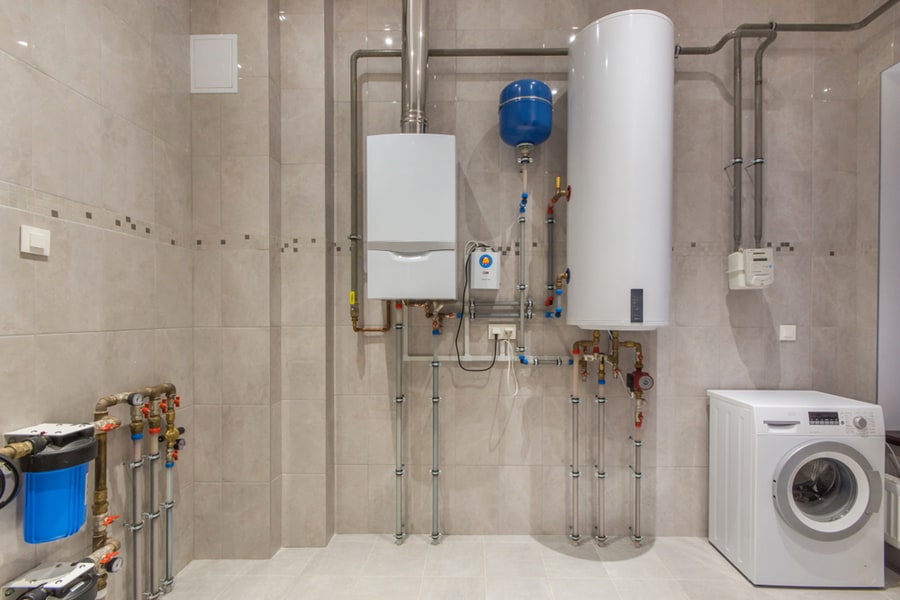
Another reason your water heater may not be very energy-efficient is that it loses a lot of heat through the storage tank.
This heat loss causes the unit to stay on longer than it should, which increases your electricity bill. You can make your heater more energy efficient by insulating the tank.
But be careful when insulating by following the manufacturer’s recommendation.
For electric heaters, be careful not to cover the thermostat. In contrast, for natural gas heaters, be careful not to cover the heater’s bottom, top, thermostat, or burner compartment.
4. Replace the Heat Trap
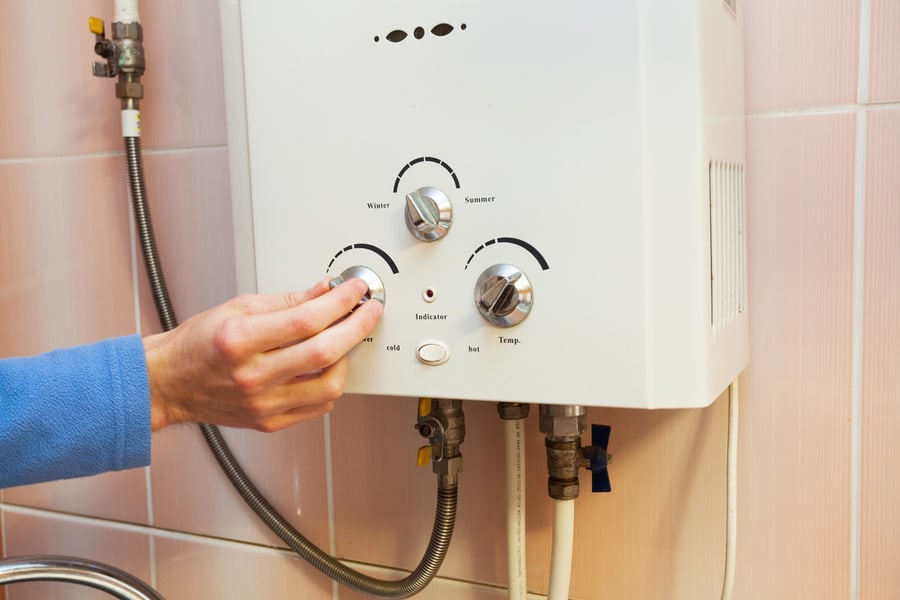
Heat traps are loops or valves in your heater that prevent unwanted heat loss due to convection. A good-quality heat trap allows cold water to flow into the tank, but heated water doesn’t.
Most electric and gas water heaters support using a heat trap, but not all feature one.
Also, if your water heater has one, but it is more than 10 years old, you should replace it.
Installing a heat trap on your water heater is quite technical, and you may need a professional to help you install them on your existing tank or replace it.
5. Repair Leaks
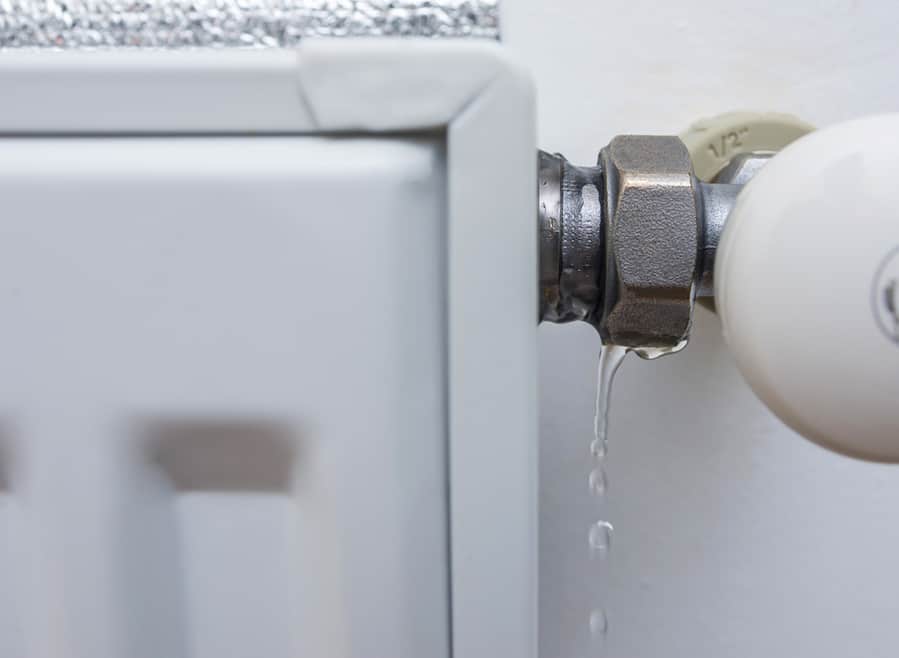
People often view a leaky faucet as insignificant, but it wastes water and increases heat loss.
As insignificant as a leak of 1 drop per second is, it can cost you $1 or more per month. The more hot water you lose due to heat, the more money you’d have to spend to replace them.
To fix leaks, inspect the heater’s tank for visible leaks. The TPR valve and the drain valve are also notorious for causing leaks.
Also, check your water pipes for leaks, especially near fixtures like showers and sinks. Note that no leak is too small to be left unfixed.
6. Insulate Water Pipes
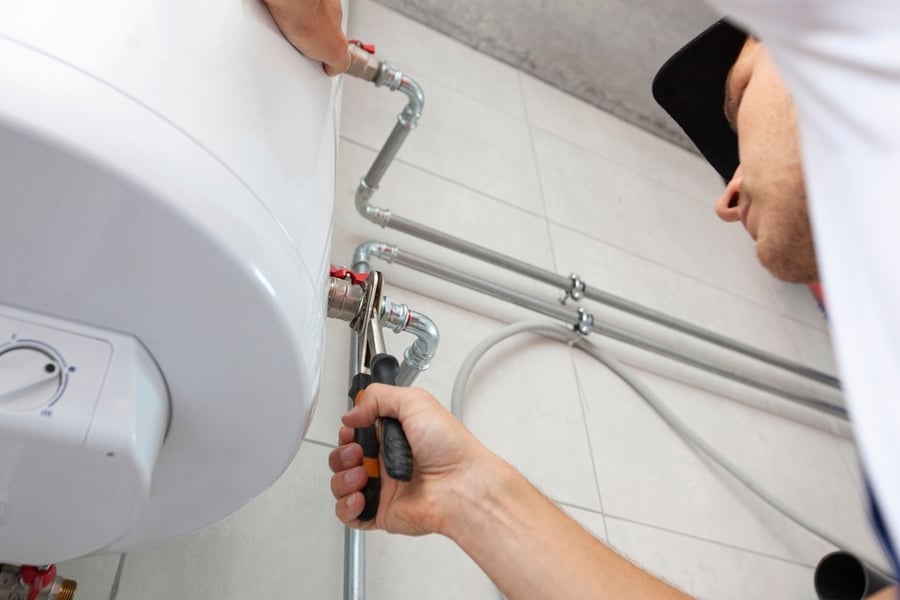
The heat from your water heater can also dissipate through the pipes.
When you lose heat through the pipes, you will need to heat more water to compensate for the loss, causing the heater to stay on longer, which means it consumes more power.
But when you insulate your pipes, the heat stays trapped inside the system where it belongs.
An insulated pipe can even raise the water temperature by 2 to 4F. Insulating pipes are relatively easy, pick an insulating material, measure your pipe, and get started with the right tools.
Or, better still, hire an expert to help with the insulation.
7. Install a Timer
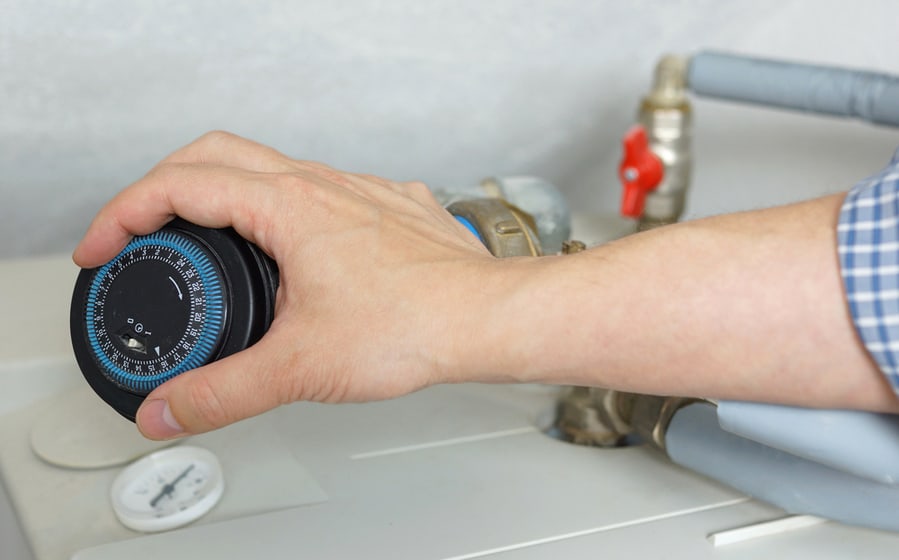
Installing a timer that turns off the electric water heater at night or when you don’t use it will help you save energy. A traditional timer is always running, which wastes electricity.
Moreover, a timer turning your heater off could add years to the lifespan of your unit.
A volt timer can be installed on an electric heater to turn off the thermostat.
Or you can upgrade your thermostat to a smart thermostat with a timer and auto-off feature. If you don’t know how to install a timer for your heater, hire a professional.
8. Use the Right-Sized Water Heater
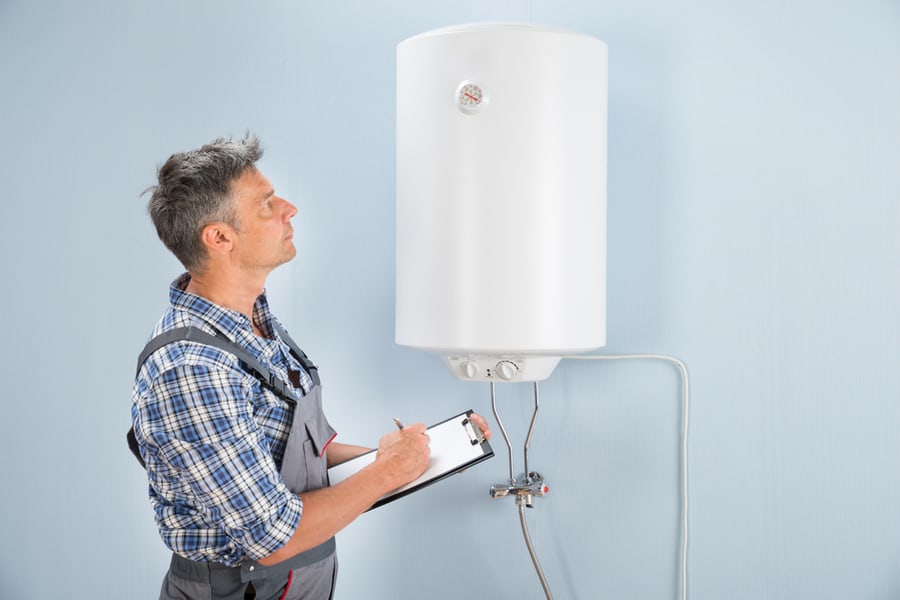
Importantly, ensure the water heater you choose to use in your home is the right size. When the heater is not the right size for your home, it will waste energy.
A smaller heater is better for reducing energy, but it depends on your home size.
In a large home, a small heater will overwork to meet the demand of everyone in the home, which spikes the electricity bill.
Similarly, getting a larger-than-needed heater for a small home will cost you more on your electric bill than you should pay. So, always consider how much hot water your home needs before getting a heater.
Conclusion
Overall, a water heater is an excellent addition to any home, but if you notice your electric bill has been high lately, consider these few tips to make it more energy efficient.
By incorporating one or more tips in this article, you can save money on your bills without cutting the water heater entirely. At the same time, it will help extend the life expectancy of your water heater.
Frequently Asked Questions
Tank or Tankless Water Heater, Which Is More Energy Efficient?
Tankless water heaters are more energy efficient for homes with high hot water consumption.
On average, if you use 41 gallons or less of hot water daily, a tankless water heater can save you up to 24% to 34% more energy than tank water heaters.
Does Turning Off the Heater Save Money?
Yes, turning off the heater saves you money. The period during which the heater is off and when you turn it back on is when you save money.
But note that when you turn off the heater, the water in the tank, if you have a tank water heater, may lose heat if not well insulated, causing the heater to run longer.


